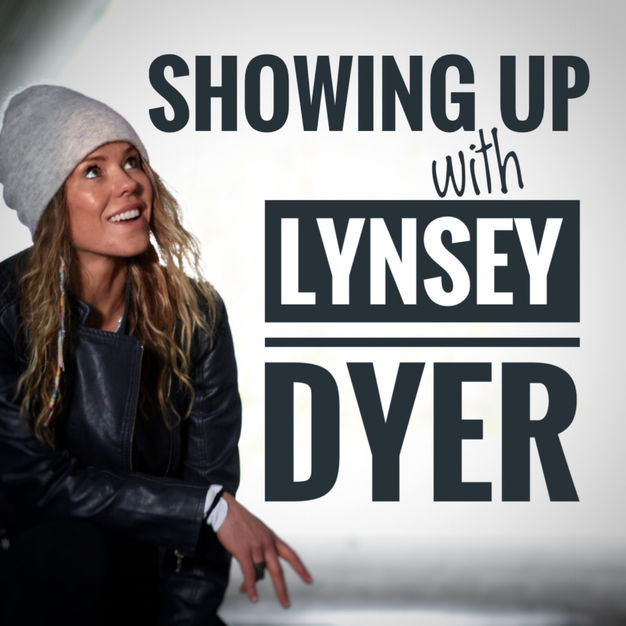
Showing UP with Lynsey Dyer
Lynsey Dyer
In-depth interviews with some of the most interesting people in the adventure sports industry.
- ShowingUP LIVE!
The pandemic inspired the ShowingUP with Lynsey Dyer podcast to go live!
Find the most up to date episodes weekly on YouTube with athletes, experts on human performance, wildlife biologists and other unicorns with inspiring stories and wisdom to share. As always with ShowingUP, the intention is to inspire you to show up for this crazy life in your most authentic form.
You can listen on Apple Podcasts, Spotify, Stitcher, or wherever you get your podcasts.
And follow Lynsey on Instagram live to watch the shows as they happen.
7 May 2020, 11:16 am - 18 January 2020, 9:32 pm
- 1 hour 51 minutesSport As Art - My Interview on the Rich Roll Podcast
This episode was original recorded on the Rich Roll Podcast. I’ve been asked multiple times via various social medias to tell my story the way I am often extracting peoples stories on this podcast. So I reached out to Rich to see if I could share this previously recorded episode which does just that. So this is a Rebroadcast of Rich’s interview of me and hopefully this is what you guys were looking for. If you don’t already subscribe to Rich’s Podcast, check it out!
https://www.richroll.com
https://www.richroll.com/podcast/lynsey-dyer/
 2 October 2019, 12:00 pm
2 October 2019, 12:00 pm - 1 hour 58 secondsEp. 24 - One Crazy Idea and 2000 miles Later - Casey and Ryan Higginbotham
Think of all of the crazy ideas you had in your twenties, now imagine if you actually followed through on them. That’s what brothers Casey and Ryan Higginbotham did. They paddled over 2000 miles on their boards, not standup paddle boards by the way, from Alaska to the U.S./ Mexico border.
What’s more is that they didn’t have a big corporate sponsor or even a crowdfunding page. A few companies helped them out, but it was a trip planned and funded by the brothers for their own reasons.
We talk about what those are as well as what their day-job is like, being professional lifeguards. Oh, and we don’t gloss over the less-glamorous details of thousands of miles of self supported adventure. That includes how the brothers got along with each other, what happens when you break a board and what you do when nature calls when you’re sealed up tight in a wetsuit. By the way, I don’t mean having to take a whiz.
 21 August 2019, 1:00 pm
21 August 2019, 1:00 pm - 1 hour 25 minutesEp. 23 - Kathie Chandler: An Intuitive’s Guide to Life
Are we alone in life? Kathie Chandler says no, we have help guiding us through life. Kathie is a life coach, energy healer and intuitive. We talk about her approach to understand life and her approach to making big choices.
She uses her understanding of the world to heal and to coach people through the challenges of life. Kathie dives into what’s going on when we second guess ourselves, and where those doubts are really coming from.
We also talk about how to deal with this chaotic modern world we live in and trust me, you probably haven't heard this perspective before.
 26 June 2019, 11:43 am
26 June 2019, 11:43 am - 51 minutes 44 secondsEp. 22 - Brett Buckles: Competition and Recovery
After leaving ski racing, Brett Buckles found new joy in skiing in the world of skiercross. Then, in 2008, she suffered a massive injury. It took time and perseverance to heal her body, but even more to address what happened to her brain.
We talk through her early life including what brought her to competitive skiing. We also talk about her long road to recovery after that day in Tignes, France. While the conversation around athletes and brain trauma has become more visible, however women often get left out.
Lynsey and Brett dive into that part of the conversation and Brett talks about what may have been the scariest question of all after her accident. Following months of pain and recovery, what was she going to do next?
 23 May 2019, 4:31 pm
23 May 2019, 4:31 pm - 51 minutes 44 secondsEp. 21 - Julian Carr - Fear is a given. (Part 2)
Part 2 with Julian Carr.
Part 1 - https://bit.ly/2u0KmtO
We talk about his upbringing, how he came to the sport, his approach to skiing in general and how he goes about hitting the huge cliffs he’s known for. Just because a small cliff for him is around 50 feet, that doesn’t mean Julian loves being reckless. In fact, he has a very methodical, considered approach to skiing.
We talk about how that approach comes from parents who let him get bruised up from jumping off neighborhood roofs, and who also instilled in him a love of learning, poetry and the outdoors. It also comes from his own response to a serious injury.
I talk to Julian about how if events went a little differently, he could have become a snowboarder. We talk about his career, why and how he started Discrete and yes, we talk about how he thinks through jumping off big, big cliffs.
11 March 2019, 1:00 pm - 52 minutes 5 secondsEp. 20 - Julian Carr - Fear is a given. A careful approach to Risk.
We talk about his upbringing, how he came to the sport, his approach to skiing in general and how he goes about hitting the huge cliffs he’s known for. Just because a small cliff for him is around 50 feet, that doesn’t mean Julian loves being reckless. In fact, he has a very methodical, considered approach to skiing.
We talk about how that approach comes from parents who let him get bruised up from jumping off neighborhood roofs, and who also instilled in him a love of learning, poetry and the outdoors. It also comes from his own response to a serious injury.
I talk to Julian about how if events went a little differently, he could have become a snowboarder. We talk about his career, why and how he started Discrete and yes, we talk about how he thinks through jumping off big, big cliffs.
9 February 2019, 12:19 pm - 51 minutes 31 secondsEp. 19 - Why "fighting" climate change isn't the answer - Paul Hawken
Paul’s Book - Drawdown: The Most Comprehensive Plan Ever Proposed to Reverse Global Warming
https://amzn.to/2Dh7oC0
18 January 2019, 1:06 pm - 43 minutes 20 secondsEp. 18 - (Part 2) The Avalanche that changed his life - Cory Richards
Part 1 - https://apple.co/2rX9Gjc
How Cory shows up? By letting his raw and self possessed life show in his work.
It’s impossible to talk about what Cory Richards has accomplished in his professional life without looking at what he’s gone through in his personal life. Cory found photography after surviving a painful relationship with his older brother and several attempts at clinical treatment. That early trauma both helped create the ferocity with which he tackled his later endeavors and also a jealousy that’s he’s learned to tame and channel.
We don’t just talk about Cory’s accomplishments, like being a National Geographic photographer and a North Face athlete, but what’s it’s like to have actually lived those experiences. That includes the nearly-fatal avalanche that was featured in the award-winning film Cold, which chronicled his team’s ascent of Pakistan’s Gasherbrum II. We also talk about how his iconic self portrait in the aftermath of that event caught him in a raw emotional state, and how he feels about one of his most well-known shots being of himself in the age of social media.
Cory has lived a rich life, not always pretty one, not always the perfectly manicured image of an outdoor profesional we are used to seeing plastered across the internet.
More than anything, we talk about what goes on in Cory’s head, including what it’s like to deal with trauma, both from his early childhood and his near death experience. We also touch on what it’s like to parse the idea of masculinity in the Me Too era and why, moments from death, what flashed through his mind wasn't his life, but thoughts of parking tickets and Cheerios.
https://coryrichards.com
This episode is brought you by: https://wiivv.com
28 December 2018, 10:00 pm - 55 minutes 19 secondsEp. 18 - Pain, Healing & Instagram with Cory Richards (Part 1)
How Cory shows up? By letting his raw and self possessed life show in his work.
It’s impossible to talk about what Cory Richards has accomplished in his professional life without looking at what he’s gone through in his personal life. Cory found photography after surviving a painful relationship with his older brother and several attempts at clinical treatment. That early trauma both helped create the ferocity with which he tackled his later endeavors and also a jealousy that’s he’s learned to tame and channel.
We don’t just talk about Cory’s accomplishments, like being a National Geographic photographer and a North Face athlete, but what’s it’s like to have actually lived those experiences. That includes the nearly-fatal avalanche that was featured in the award-winning film Cold, which chronicled his team’s ascent of Pakistan’s Gasherbrum II. We also talk about how his iconic self portrait in the aftermath of that event caught him in a raw emotional state, and how he feels about one of his most well-known shots being of himself in the age of social media.
Cory has lived a rich life, not always pretty one, not always the perfectly manicured image of an outdoor profesional we are used to seeing plastered across the internet.
More than anything, we talk about what goes on in Cory’s head, including what it’s like to deal with trauma, both from his early childhood and his near death experience. We also touch on what it’s like to parse the idea of masculinity in the Me Too era and why, moments from death, what flashed through his mind wasn't his life, but thoughts of parking tickets and Cheerios.
https://coryrichards.com
This episode is brought you by: https://wiivv.com
14 December 2018, 12:00 pm - More Episodes? Get the App
Your feedback is valuable to us. Should you encounter any bugs, glitches, lack of functionality or other problems, please email us on [email protected] or join Moon.FM Telegram Group where you can talk directly to the dev team who are happy to answer any queries.
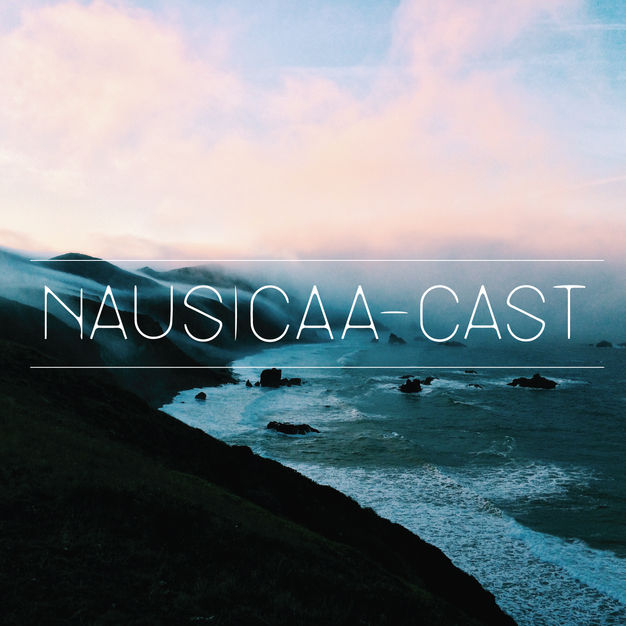 Nausicaa Cast
Nausicaa Cast
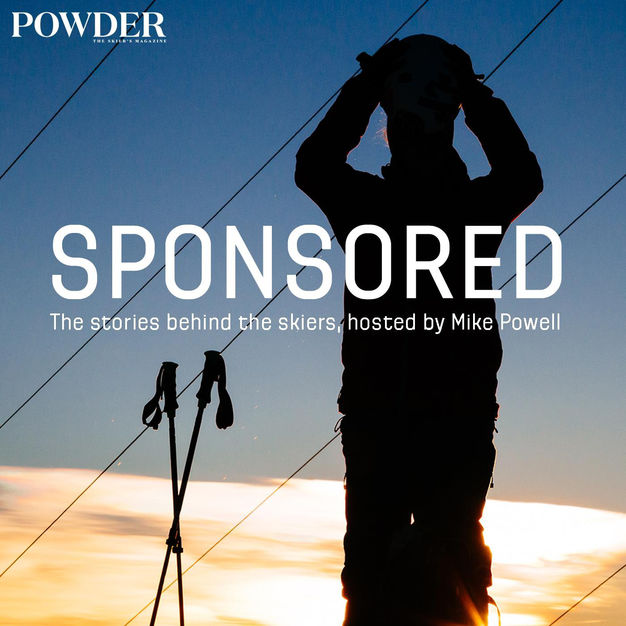 Sponsored: The stories behind the skiers
Sponsored: The stories behind the skiers
 Slide: The Avalanche Podcast
Slide: The Avalanche Podcast
 Afterglow, A Mountain Storytelling Podcast
Afterglow, A Mountain Storytelling Podcast
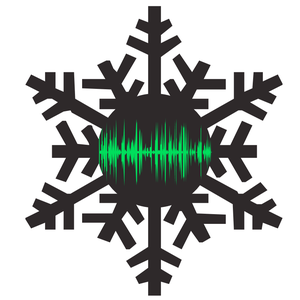 Low Pressure Podcast: The Podcast for Skiers
Low Pressure Podcast: The Podcast for Skiers
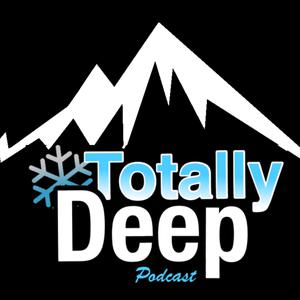 Totally Deep Backcountry Skiing Podcast
Totally Deep Backcountry Skiing Podcast